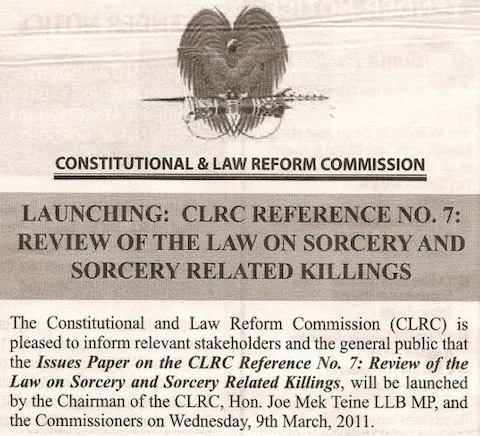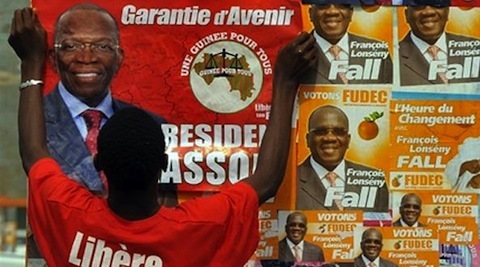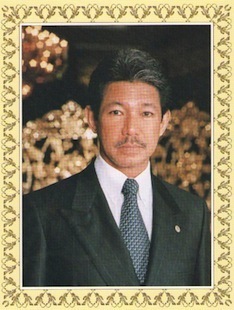Brendan I. Koerner's Blog, page 7
March 6, 2013
High Stakes
 I was recently intrigued to learn that 45 percent of the world’s opiate alkaloids—that is, the ones incorporated into prescription medicines rather than illicit narcotics—come from Tasmanian poppies. The Australian state’s dominance in this industry is the result of several factors, starting with its unique geography; tucked away in the Southern Hemisphere and surrounded by water, it has natural security advantages over more accessible rivals. But Tasmanian poppy growers have also benefitted from astute regulatory oversight, which has included healthy public investment in agricultural research—research that has dramatically increased the per-poppy opiate yield over the decades.
I was recently intrigued to learn that 45 percent of the world’s opiate alkaloids—that is, the ones incorporated into prescription medicines rather than illicit narcotics—come from Tasmanian poppies. The Australian state’s dominance in this industry is the result of several factors, starting with its unique geography; tucked away in the Southern Hemisphere and surrounded by water, it has natural security advantages over more accessible rivals. But Tasmanian poppy growers have also benefitted from astute regulatory oversight, which has included healthy public investment in agricultural research—research that has dramatically increased the per-poppy opiate yield over the decades.
But Tasmania evidently isn’t producing enough poppies, at least according to TPI Enterprises, the dominant processor on the island. TPI now wants to import additional poppies from Turkey, a plan that is causing no small amount of consternation among their domestic growers. To press their case, those growers are arguing that TPI’s Turkish plans could undermine Tasmania in some rather unexpected ways:
At the hearing, held in Launceston, Tasmanian Farmers and Graziers Association’s Jan Davis raised concerns surrounding biosecurity, which Mr Rice shared.
“If you’re going to import 2000 tonnes of raw poppy capsule into Tasmania and that’s going to take a minimum of 150 to 200 containers … the bio-sec and risk associated with that is enormous,” he said.
Mr Rice said there was also the issue of intellectual property theft, with Tasmanian poppy seeds being taken over to Turkey to be modelled and grown.
I find the last point most interesting, and perhaps most convincing. While it is hard to imagine a transnational crime syndicate having the wherewithal to steal massive quantities of poppy capsules from container ships, I can easily see the dangers in poppy-related IP theft. Yield is everything in industries such as this, and the secrets of those yields are bound up in the unique genetic makeup of each seed. If a country with lower labor and land costs can figure out how to produce a crop on par with Tasmania’s, they could dominate the market a decade down the line. The advantages of being a remote island can only take Tasmania so far.
March 5, 2013
Teksi Driver
Apologies for the late jump on the week, but I’m swamped with prepping an excerpt from The Skies Belong to Us. Back tomorrow with thoughts on the brouhaha in Tasmania’s poppy industry; in the meantime, take a moment to learn about the hardships of driving a taxi in Port Moresby.
March 1, 2013
A Wonder This Didn’t Catch On
 In an attempt to flesh out the nascent The Skies Belong to Us mood board, I have been combing through reams of patents for anti-hijacking devices. Most are deliciously zany, such as this capture chamber or this trick chair. The hijacking epidemic of the late 1960s and early 1970s certainly seems to have fired up the imaginations of inventors who spent their formative years watching secret-agent flicks at the local movie palace.
In an attempt to flesh out the nascent The Skies Belong to Us mood board, I have been combing through reams of patents for anti-hijacking devices. Most are deliciously zany, such as this capture chamber or this trick chair. The hijacking epidemic of the late 1960s and early 1970s certainly seems to have fired up the imaginations of inventors who spent their formative years watching secret-agent flicks at the local movie palace.
Reading slightly off-center patents is a true pleasure for those who enjoy tangents, for each document offers handy links to related inventions. By perusing the citations for the trick chair, for example, I was led to this bonkers gadget, which presents a classic case of best intentions gone awry. The first paragraph of the abstract speaks for itself (with apologies for the anatomically frank language):
An anti-rape device having a hollow housing adapted to be worn within the human vagina. The housing has a front opening and contains a hypodermic syringe having a volume of rape-deterring fluid and a needle facing and aligned with the front opening. Actuator means in the housing are provided which include housing means such as a spring to force the needle through the front opening and inject the fluid, cocking means to cock the device into a position which totally shields the needle within the housing, and prevents action of the spring, and trigger means which automatically releases the cocking means, upon forceful penis penetration of a vagina containing the device, to permit the spring to protrude the needle and inject the fluid into the penis. Preferably, the fluid is a quick-acting, safe narctoc such as scopolamine, or the like to render the rapist unconscious.
More detailed (and, I assure you, completely safe-for-work) drawings here. I could unearth no evidence that this device ever went into production, perhaps because early market research revealed that the target consumers might be a wee bit skittish about carrying around scopolamine-filled needles inside their bodies.
February 28, 2013
Documents Matter
 I have been reluctant to comment on the recent witch burning horror in Papua New Guinea, even though I have previously written at length about that nation’s problems with stamping out superstition-related violence. There was something alarmingly voyeuristic about the way in which the murder was covered, and I didn’t think it appropriate to chime in when others were busy leering at the terrible events in question. But enough time has now passed for more sober takes to pop up, and one of the best comes through the eyes of a Catholic priest who has spent four decades in Papua New Guinea. He coolly explains why the belief in sorcery persists in rural areas of his adopted country, and one of the reasons he offers has to do with the nation’s lack of bureaucracy:
I have been reluctant to comment on the recent witch burning horror in Papua New Guinea, even though I have previously written at length about that nation’s problems with stamping out superstition-related violence. There was something alarmingly voyeuristic about the way in which the murder was covered, and I didn’t think it appropriate to chime in when others were busy leering at the terrible events in question. But enough time has now passed for more sober takes to pop up, and one of the best comes through the eyes of a Catholic priest who has spent four decades in Papua New Guinea. He coolly explains why the belief in sorcery persists in rural areas of his adopted country, and one of the reasons he offers has to do with the nation’s lack of bureaucracy:
Gibbs said he tried to convince his parishioners to take a more modern and scientific view of the world “such as asking a medical doctor the cause of death,” saying medical authorities need to be more open about causes of death, and in a country that often has no death certificate system, he wants one. Oddly, people will accept a death by heart attack; but not high blood pressure.
A great number of attacks on “witches” come after someone—usually a child—has suddenly fallen ill and died. Absent of any formal explanation of how such a tragedy could have occurred, the superstitious seek scapegoats. A great many innocent lives could be saved if the government could somehow help grieving relatives understand that their loved ones were victims of terrible luck, rather than dark arts. Something as simple as a piece of paper with an official stamp certainly might help bolster the legitimacy of such an official explanation.
February 26, 2013
Maximum Entertainment
Double Wired deadline today, plus tweaking a soon-to-launch Web project related to The Skies Belong to Us. Back tomorrow with something slightly more erudite than footage of Loni Anderson strutting across a field of broken glass.
February 25, 2013
A Question of Competence
 Guinea’s political opposition is none-too-pleased with the current regime’s decision to outsource the management of May’s election to Waymark, a South African information technology firm. At first glance, these objections may seem flimsy, based more on xenophobia than legitimate fear of cronyism. But if you scratch beneath the surface a bit, you can get a sense of the very specific reasons why Guinean opposition leaders are skeptical of Waymark’s credentials:
Guinea’s political opposition is none-too-pleased with the current regime’s decision to outsource the management of May’s election to Waymark, a South African information technology firm. At first glance, these objections may seem flimsy, based more on xenophobia than legitimate fear of cronyism. But if you scratch beneath the surface a bit, you can get a sense of the very specific reasons why Guinean opposition leaders are skeptical of Waymark’s credentials:
Benin alleged in 2008 that the [Waymark] system it used was unreliable and the manner in which it secured the contract was questionable. [Waymark] was chucked out early in tendering for the Cameroonian election this year. In South Africa, Waymark was axed by the Department of Trade and Industry after it was accused of improperly securing an R11m contract to maintain information technology for the former Cipro (now the Companies and Intellectual Property Commission).
It was alleged that President Condé’s son, Mohamed Alpha Condé, worked for Waymark at one stage and introduced the company to the administration…It was reported that the Guinean finance department said Waymark’s contract work amounted to $3m, but the invoice was for $14m. And the United Nations website reveals that Waymark was removed from its list of approved service providers in September 2008.
There isn’t much hard evidence to back up some of the more explosive allegations against Waymark, but there is one notable negative about the company that anyone can check out for themselves: its laughably lackluster website. Tough to imagine trusting a shaky democracy to a company that can’t get basic HTML right.
February 21, 2013
Muzzled in Fiji
Approximately two years ago, the Fiji Times reprinted a story from New Zealand’s Sunday Star Times in which a soccer official questioned the ethical soundness of Fiji’s judiciary. The military dictator who runs Fiji as his personal fiefdom did not take kindly to such an insinuation, even though even a casual observer of the island nation can recognize the criticism as true. And so the Fiji Times now finds itself in a sticky legal situation, having been found guilty of contempt of court and fined the equivalent of $170,000. The newspaper was compelled to cover its own punishment, which it did so in the gentlest terms possible:
In 2011, Tai Nicholas made comments to a reporter of the New Zealand-based Sunday Star Times responding to questions on former Fiji Football Association president Dr Muhammed Shamsud-Dean Sahu Khan’s official position in the OFC and FIFA (International Federation of Football Association).
The Sunday Star Times article that contained Mr Nicholas’s comments was published verbatim in this newspaper the following day.
Those comments, according to an affidavit filed by the Attorney-General’s office in November 2011, were said to “scandalise the court and the judiciary of Fiji in that they were a scurrilous attack on the members of the judiciary, thereby lowering the authority of the judiciary and the court”.
In his judgment, Justice Calanchini said this was a case of contempt of court which should be punished by a penalty that reflects the public interest, acts as a deterrent and appropriately denounces the conduct of the respondents.
Whether the tiny Fiji Times can continue to operate with such a judgment hanging over its head is anyone’s guess. I am certain that the powers-that-be in Fiji would prefer that it shut down. Those at the helm of the newspaper must decide not only whether they can survive financially, but whether they wish to risk further harassment. The fact that they are faced with such a difficult choice bodes incredibly ill for Fiji’s future.
February 19, 2013
Life in the Bubble
 The adulation accorded Lawrence Wright’s Going Clear motivated me to look up the very first Scientology exposé I can remember: Richard Behar’s 1991 Time investigation, which irked the Church to no end. That piece made me a lifelong fan of Behar, whose meticulous approach to reporting is something I’ve sought to emulate in my own career.
The adulation accorded Lawrence Wright’s Going Clear motivated me to look up the very first Scientology exposé I can remember: Richard Behar’s 1991 Time investigation, which irked the Church to no end. That piece made me a lifelong fan of Behar, whose meticulous approach to reporting is something I’ve sought to emulate in my own career.
My favorite Behar piece is his 1999 Fortune account of shenanigans in Brunei’s royal family. Astoundingly, Behar managed to snag an interview with the notoriously profligate Prince Jefri, a man who otherwise shuns the media. That interview reveals a man who, by virtue of his spectacular wealth, has no need to engage with everyday reality:
The prince–flanked by a $160,000 pair of solid-gold tissue dispensers–spoke less in sentences than in syllables. He giggled and glared and cocked his head as if I’d just fallen through the roof in a full suit of armor.
“Jefri is not geared for questions,” explained an apologetic aide. “He is painfully shy,” added another. Jefri did manage to say that he was “looking forward” to his return to Brunei, that he missed the Sultan, and that he was “upset, confused, disappointed” when his assets were suddenly seized. I asked how long he planned to stay in Brunei. “I’m very open,” he responded. I tried another tack. Will the Sultan see you? “He knows I’m coming.” Laughter filled the room, but I’d somehow missed the joke. Have the two of you spoken by phone? “Yes, it is good that way. He asked me about the weather in New York.”
I wanted Jefri’s views on the events swirling around Brunei. “You ask me? You were there.” Again, more laughter. When I asked about Aziz and the conservatives, Jefri said that “they would have their own agendas.” And what are those agendas? “You can tell me,” the prince responded. Chuckles all around.
Clearly, this was the stuff of history, so I pressed on. I told Jefri it seemed that certain government officials wanted his country to become more conservative. “They didn’t tell me,” he responded. I also told him it was obvious from my visit to Brunei that he had done many things to open up the society. “What did I do?” he asked, sounding alarmed and confused.
Jefri never says anything of consequence in the interview, but his inability to observe basic norms of human communication speaks volumes about his character. This is a man for whom fellow members of his species are mere abstractions.
February 15, 2013
Mistakes Were Made
 Crashing on a mammoth Wired opus today, as well as reviewing the final page proofs for The Skies Belong to Us (which is now endorsed by some thoroughly amazing folks). Back on Monday, provided Asteroid 2012 DA14 doesn’t veer off course and dinosaur us all.
Crashing on a mammoth Wired opus today, as well as reviewing the final page proofs for The Skies Belong to Us (which is now endorsed by some thoroughly amazing folks). Back on Monday, provided Asteroid 2012 DA14 doesn’t veer off course and dinosaur us all.
February 14, 2013
Grudge Match
 When Senator Warren B. Rudman recently passed, I was struck by the concluding section of his New York Times obituary, which contained an anecdote that attested to his stubbornness:
When Senator Warren B. Rudman recently passed, I was struck by the concluding section of his New York Times obituary, which contained an anecdote that attested to his stubbornness:
Mr. Rudman feuded with his alma mater long after he had left its campus. In 1952, Syracuse University withheld his bachelor’s diploma because he had refused to pay an $18 fee for the yearbook, saying he had not been told of the charge in advance. After he was elected to the Senate, Syracuse offered him the degree or, if he preferred, an honorary degree. It eventually mailed him the diploma, but he never opened the package, and he later blocked an earmark of several million dollars for the university.
This story got me thinking about narratives in which tiny, even accidental slights can have life-altering repercussions down the line. A classic example from recent popular culture is probably Seasons Two of The Wire, in which a seemingly innocuous rivalry over stained-glass windows leads to a hard-working family’s total destruction. Yet I much prefer a tale from the realm of the real—the backstory on the whole Black Sox scandal as recounted by Shoeless Joe Jackson in this 1949 interview. According to Jackson, his lifetime banishment from the game was due solely to bad blood that existed between Chicago White Sox owner Charles Comiskey and American League president Ban Johnson—bad blood that stemmed from a truly petty dispute:
I’ll tell you the story behind the whole thing. The trouble was in the front office. Ban Johnson, the president of the American League, had sworn he’d get even with Mr. Comiskey a few years before, and that was how he did it. It was all over some fish Mr. Comiskey had sent to Mr. Johnson from his Wisconsin hunting lodge back about 1917. Mr. Comiskey had caught two big trout and they were such beauties he sent them to Mr. Johnson. He packed the fish in ice and expressed them, but by the time they got to Chicago the ice had melted and the fish had spoiled. They smelled awful and Mr. Johnson always thought Mr. Comiskey had deliberately pulled a joke on him. He never would believe it any other way.
That fish incident was the cause of it all. When Mr. Johnson got a chance to get even with Mr. Comiskey, he did it. He was the man who ruled us ineligible. He was the man who caused the thing to go into the courts. He did everything he could against Mr. Comiskey.
There has to be some competitive advantage of being prone to grudges—they can be such a powerful motivator, perhaps even more so than the desire for creature comforts. But when a grudge is finally won after many years, even a lifetime of struggle, how often are the psychological rewards worth the accumulated bile?




